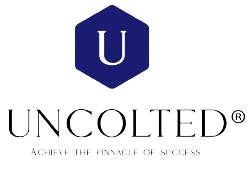| cybersecurity | UNCOLTED BLOG

The Power of AI - Maximizing ROI and Ensuring Responsible AI Management
Artificial intelligence (AI) is transforming industries and supercharging ROI for businesses worldwide. Take, for example, a leading retail company that recently used AI-driven predictive analytics to boost its revenue by 20% in just six months. By analyzing customer preferences and purchasing trends, the company could optimize stock, personalize marketing, and enhance customer experience, all of which led to increased sales. The success of this approach highlights the immense potential of AI—but it also underscores the importance of managing AI responsibly as its applications expand.
The Game-Changing Potential of AI
AI is reshaping industries with capabilities that span from automating repetitive tasks to generating complex insights from vast data pools. Businesses across sectors are reaping benefits, including:
- Operational Efficiency: AI systems streamline operations, freeing up resources and allowing employees to focus on higher-value work.
- Enhanced Decision-Making: By analyzing data at unprecedented speed and depth, AI provides actionable insights that help businesses make informed, data-driven decisions.
- Customer Personalization: AI enables companies to offer highly customized experiences, boosting customer satisfaction and loyalty, which ultimately drives revenue growth.
Adopting AI and Managing It Responsibly
As businesses adopt AI to gain a competitive edge, they also face the challenge of managing it responsibly. The sheer power of AI requires a strategic approach to avoid potential pitfalls, such as bias, data privacy risks, and over-reliance on automated decisions. This is where ISO frameworks for AI management come in.
A Blueprint for Responsible AI Management
ISO frameworks, like the emerging ISO 42001 for AI management, provide standards for organizations to ensure their AI applications are ethical, transparent, and effective. Here’s how they help:
- Risk Management: ISO frameworks guide companies in identifying, assessing, and mitigating potential risks associated with AI, ensuring the technology serves its intended purpose without unintended consequences.
- Ethics and Transparency: ISO emphasizes fair and transparent AI practices, ensuring that AI systems operate without bias and that outcomes can be explained and trusted by users.
- Compliance and Data Protection: As data privacy regulations tighten, ISO frameworks help businesses maintain compliance by establishing data protection standards for AI applications.
- Continuous Improvement: The AI landscape is dynamic, and ISO frameworks encourage ongoing evaluation and improvement, ensuring companies keep pace with advancements while maintaining responsible use.
The Future of AI and the Need for Frameworks
AI’s capabilities will only grow, bringing even greater opportunities for innovation and competitive advantage. However, responsible AI management is crucial to maximize benefits while minimizing risks. By adopting ISO frameworks, companies can leverage AI responsibly, aligning their AI strategies with best practices, ethics, and regulatory compliance.
The future of AI holds transformative potential, but with it comes the responsibility to ensure AI-driven success is sustainable and ethical. Embracing ISO frameworks for AI management enables businesses to innovate with confidence, driving growth while safeguarding trust and accountability in an AI-powered world.
